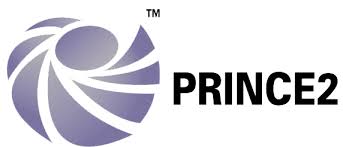
Conflict Resolution in Remote and Hybrid Teams
Course ID: 2508180101083ESH
Course Dates : 18/08/25 Course Duration : 5 Studying Day/s Course Location: London, UK
Language: Bilingual
Course Category: Professional and CPD Training Programs
Course Subcategories: Leadership and Management Excellence
Course Certified By: ESHub CPD & LondonUni - Executive Management Training
* Professional Training and CPD Programs
Leading to:
Executive Diploma Certificate
Leading to:
Executive Mini Masters Certificate
Leading to
Executive Masters Certificate
Certification Will Be Issued From :
From London, United Kingdom
Course Fees: £5,120.30
Vat Not Included in the price. VAT may vary depending on the country where the course or workshop is held.
Click to Pay
Date has passed please contact us Sales@e-s-hub.com
Course Information
Introduction
The rise of remote and hybrid work environments has transformed the way teams collaborate, communicate, and resolve conflicts. With distributed teams becoming a permanent fixture in industries ranging from technology to healthcare, the challenges of managing interpersonal dynamics have grown more complex. Unlike traditional in-office settings, remote and hybrid teams often lack the non-verbal cues and spontaneous interactions that facilitate conflict resolution. This course is designed to address these unique challenges by equipping participants with the tools and strategies necessary to navigate conflicts effectively in virtual and blended workspaces.
Conflict resolution in remote and hybrid teams is not merely about addressing disagreements; it involves fostering a culture of trust, psychological safety, and open communication. Research shows that unresolved conflicts can lead to decreased productivity, higher turnover rates, and diminished employee morale. For instance, a case study involving a global software development company revealed that unaddressed tensions among remote team members resulted in project delays and strained client relationships. By understanding the nuances of conflict in digital environments, professionals can mitigate these risks and create cohesive, high-performing teams.
One of the key gaps this course addresses is the limited awareness of how digital communication tools impact conflict dynamics. Misinterpretations arising from emails, chat messages, or video calls are common pitfalls in remote settings. The course draws on frameworks such as Thomas-Kilmann’s Conflict Mode Instrument and Fisher and Ury’s Getting to Yes to provide participants with a structured approach to resolving disputes. These theories are adapted to the digital context, offering practical insights into managing conflicts through asynchronous and synchronous communication channels.
Mastering conflict resolution skills benefits both individuals and organizations. For employees, it enhances their ability to build rapport, manage stress, and foster collaboration—qualities that are increasingly valued in leadership roles. Organizations, on the other hand, gain from reduced workplace friction, improved team cohesion, and enhanced innovation. A survey conducted by Harvard Business Review found that companies investing in conflict resolution training reported a 20% increase in team productivity within six months. Such outcomes underscore the tangible value of this course for modern workplaces.
To illustrate the practical applications of this training, consider the example of a multinational marketing firm that implemented conflict resolution workshops for its hybrid teams. After the training, team leaders reported a significant reduction in misunderstandings during cross-border projects and an increase in proactive problem-solving behaviors. This anecdote highlights how theoretical knowledge translates into real-world success, making the course indispensable for professionals navigating the complexities of remote and hybrid work.
By blending cutting-edge research with actionable strategies, this course positions itself at the intersection of psychology, management, and technology. Participants will explore the latest trends in virtual team dynamics, including the role of AI-driven communication platforms and emotional intelligence in conflict resolution. Whether you are a seasoned leader or a newcomer to remote work, this program offers the expertise needed to thrive in today’s evolving professional landscape.
Objectives
By attending this course, participants will be able to:
Analyze the root causes of conflicts in remote and hybrid teams using established psychological frameworks.
Evaluate the impact of digital communication tools on interpersonal dynamics and propose solutions to minimize miscommunication.
Design and implement conflict resolution strategies tailored to diverse team structures and cultural contexts.
Apply emotional intelligence principles to de-escalate tensions and promote constructive dialogue in virtual environments.
Develop policies and guidelines for fostering psychological safety in remote and hybrid teams.
Assess the effectiveness of conflict resolution interventions through feedback mechanisms and performance metrics.
Synthesize best practices from industry case studies to create a personalized action plan for their organization.
Who Should Attend?
This course is ideal for:
HR managers and organizational development specialists seeking to enhance team cohesion and reduce workplace friction.
Team leaders and project managers responsible for overseeing remote or hybrid teams.
Consultants and coaches specializing in leadership development and team dynamics.
Educators and trainers who design curricula for workplace communication and conflict management.
Professionals transitioning to remote or hybrid work environments who wish to build foundational skills in conflict resolution.
This program is particularly valuable for intermediate learners who already possess basic knowledge of conflict management but seek advanced techniques specific to digital workspaces. However, beginners will also benefit from the comprehensive introduction to core concepts and frameworks.
Training Method
• Pre-assessment
• Live group instruction
• Use of real-world examples, case studies and exercises
• Interactive participation and discussion
• Power point presentation, LCD and flip chart
• Group activities and tests
• Each participant receives a 7” Tablet containing a copy of the presentation, slides and handouts
• Post-assessment
Program Support
This program is supported by:
* Interactive discussions
* Role-play
* Case studies and highlight the techniques available to the participants.
Daily Agenda
Daily Schedule (Monday to Friday)
- 09:00 AM – 10:30 AM Technical Session 1
- 10:30 AM – 12:00 PM Technical Session 2
- 12:00 PM – 01:00 PM Technical Session 3
- 01:00 PM – 02:00 PM Lunch Break (If Applicable)
- Participants are expected to engage in guided self-study, reading, or personal reflection on the day’s content. This contributes toward the CPD accreditation and deepens conceptual understanding.
- 02:00 PM – 04:00 PM Self-Study & Reflection
Please Note:
- All training sessions are conducted from Monday to Friday, following the standard working week observed in the United Kingdom and European Union. Saturday and Sunday are official weekends and are not counted as part of the course duration.
- Coffee and refreshments are available on a floating basis throughout the morning. Participants may help themselves at their convenience to ensure an uninterrupted learning experience Provided if applicable and subject to course delivery arrangements.
- Lunch Provided if applicable and subject to course delivery arrangements.
Course Outlines
Foundations of Conflict Resolution
Understanding the nature and types of conflict in remote and hybrid teams.
Exploring the psychological and behavioral factors influencing conflict dynamics.
Introduction to Thomas-Kilmann’s Conflict Mode Instrument.
Case study analysis: Lessons from successful conflict resolution initiatives.
Day 2:
Digital Communication and Misunderstandings
Evaluating the impact of email, chat, and video conferencing on conflict escalation.
Strategies for improving clarity and reducing ambiguity in written communication.
Role of tone, language, and cultural differences in virtual interactions.
Group exercise: Resolving simulated conflicts via digital platforms.
Day 3:
Emotional Intelligence in Virtual Environments
Defining emotional intelligence and its relevance to conflict resolution.
Techniques for recognizing and managing emotions in oneself and others.
Building empathy and active listening skills in remote settings.
Interactive session: Practicing empathetic responses to challenging scenarios.
Day 4:
Creating a Culture of Psychological Safety
Importance of psychological safety in preventing and resolving conflicts.
Steps to foster inclusivity and trust in hybrid teams.
Developing policies to support mental well-being and open communication.
Workshop: Drafting a psychological safety action plan.
Day 5:
Measuring and Sustaining Success
Tools and methods for assessing the effectiveness of conflict resolution efforts.
Incorporating feedback loops to refine strategies over time.
Aligning conflict resolution practices with organizational goals.
Final project: Presenting a customized conflict resolution framework.



















































